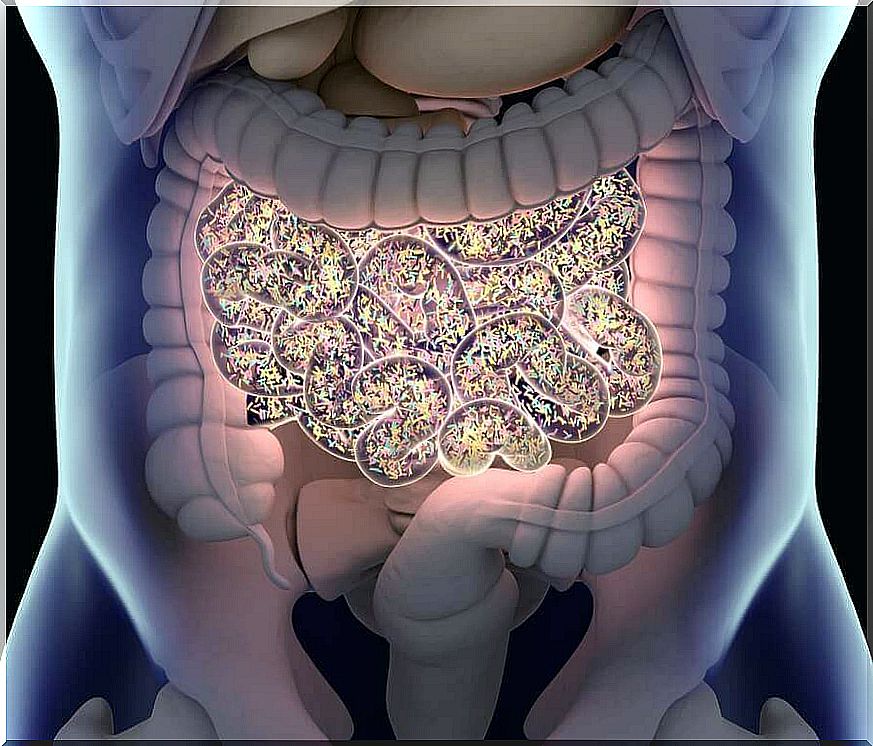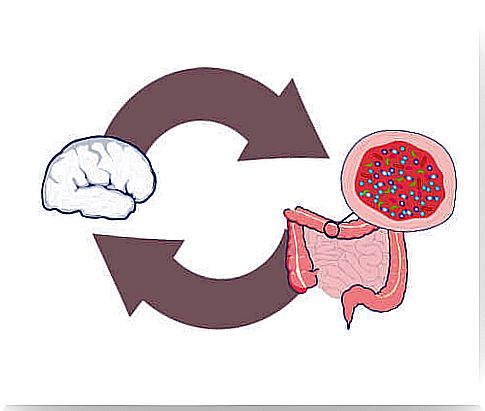Intestinal Bacteria: A Possible Basis For Future Obesity Treatments
Obesity is a global health problem that has a multifactorial etiology. Among the suspected and studied factors are intestinal bacteria.

Human beings contain a huge amount of bacteria in our body that help us to perform numerous functions -such as digestion-, or that protect us from other bacteria capable of causing disease. Some of them are intestinal bacteria.
Gut bacteria make up the gut microbiota. It is a set of microorganisms that live permanently in our digestive tract. It is made up mostly of bacteria, but there can also be viruses and fungi.
This intestinal microbiota makes up almost 1.5 kilograms of our weight. According to scientists, these bacteria fulfill a multitude of functions, since they facilitate part of the metabolic reactions that we need to live, and also stimulate the immune system.
The role of these intestinal bacteria in aspects such as obesity is currently being studied. In this article we explain the latest that is known about this topic and why it may be a future treatment.
What is the function of intestinal bacteria?
As we have already mentioned, intestinal bacteria are microorganisms present in our digestive tract. They are of different species and, in addition, in each person there is a different intestinal microbiota.
Scientists have studied these differences between people to show what are the functions that these bacteria fulfill in our body. They have proven that having a healthy microbiota contributes to maintaining a balance throughout our body.
It seems that intestinal bacteria are decisive in metabolism. They appear to help regulate appetite and weight. Also the inflammatory process that is associated with obesity. They could even play an important role in stress management.
For example, healthy people have been found to have many bacteria of the genus Clostridium . However, those who have a problem with their immune system, have a much smaller number of these.

The role in pathologies
The latest studies suggest that these intestinal bacteria may play an important role in certain diseases. For example, as they participate in glucose metabolism, they could be related to diabetes.
They could even intervene in different cardiovascular diseases. One of the most relevant data is that, in obese people, variations in the intestinal flora have been detected.
This represents one of the most relevant research fronts, due to the high incidence of obesity in the current population. It is estimated that around 650 million people are obese worldwide.

How can gut bacteria be used to treat obesity?
When there is an imbalance in the amount of intestinal bacteria, different changes can take place. First of all, it seems that many obese people have bacteria that are able to use much more of the energy present in certain foods.
That is, they absorb more nutrients than others. Therefore, in the end the caloric intake is higher than in thin people, who cannot use these nutrients. Other changes that vary according to the intestinal bacteria present in the obese individual are:
- Fewer anti-inflammatory molecules are produced.
- There is no good regulation of appetite or bowel habits.
- There is greater accumulation of fat.
All these variations are still being studied. However, they represent a large open research front. This is so because, if they are really involved so much in weight management, they could be the basis of future treatment.
In this way, the treatment would consist of modifying the proportion of intestinal bacteria. This would seek to find the balance of healthy and thin people. This could be done with certain probiotics, or even with stool transplants.
Oddly enough, stool transplants are already used to treat certain infections. They help to replace the bacterial flora present in the intestines.
In conclusion, all of this is still being investigated, but it is an important advance for medicine.









